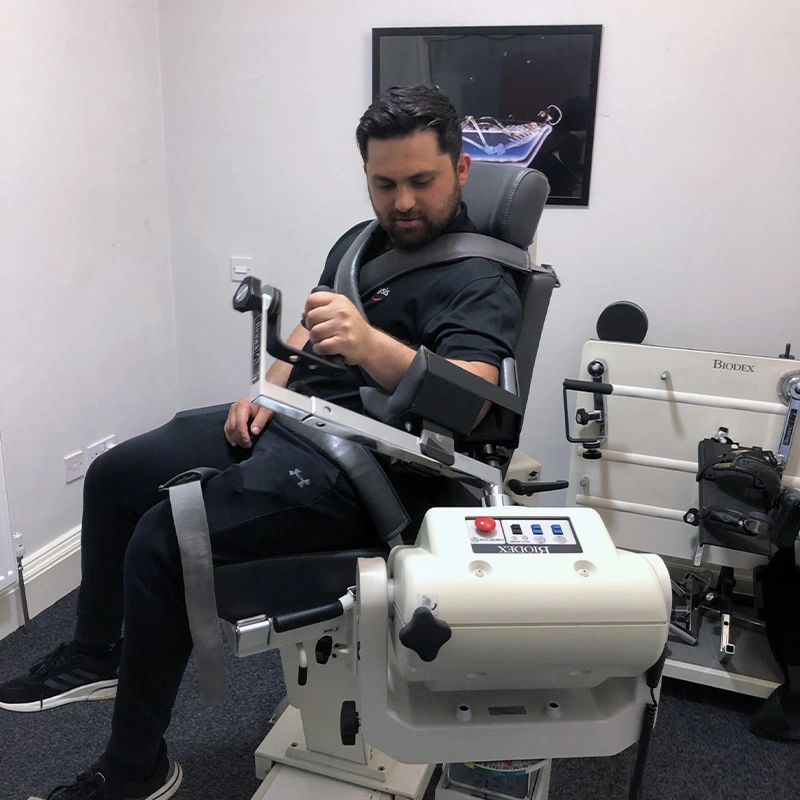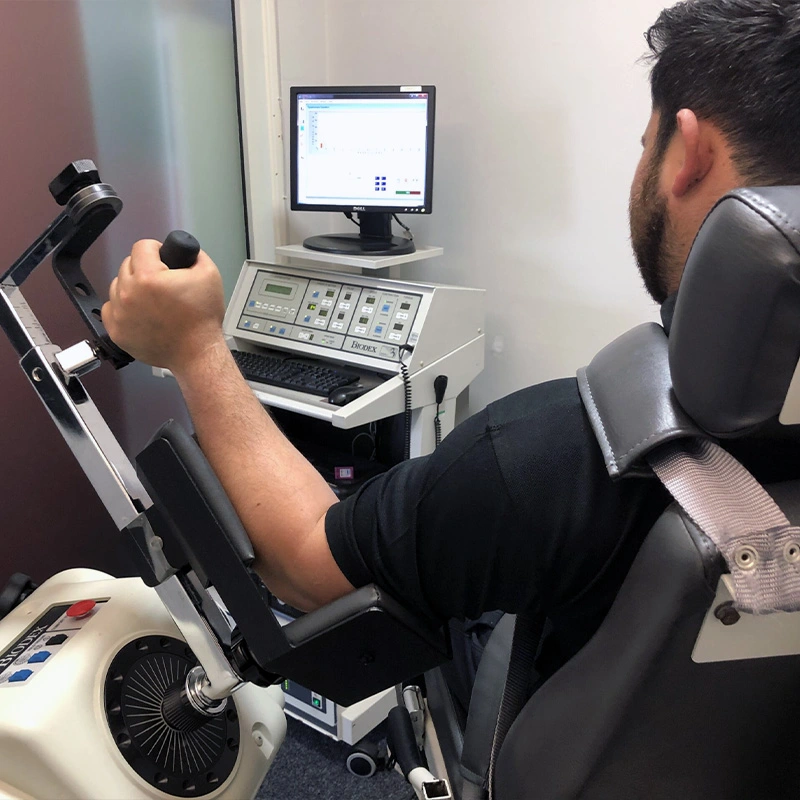When you come to see our Musculoskeletal physiotherapy team, we are looking to get you better in the easiest and most efficient way possible. By the end of your assessment we aim to give you a clinical evidence based diagnosis for your problem, a rational explanation as to why you have the ongoing symptoms (if this is not already obvious), and identify the different treatment options open to you to get yourself back to normal as quickly as you can. The recovery process is not the same for everyone and will depend on the over-riding features that we identify in the examination and history taking. That will guide as to the extent that you want us to be involved.
Treatments that we tend to use will generally fall into categories of ‘hands-on’ manual therapy, Exercise Rehabilitation, Behavioural modification, and advice and Education. We are all skilled in taping and strapping, and some of us will be able to use ‘dry needling’ which is a western-style of acupuncture, if this is deemed appropriate. If you require orthotic inserts for a biomechanical lower limb problem, we have the option to pass you to a podiatrist.
Depending on all these factors, we will then also be able to indicate to you how long the process of your recovery will take. Once better, we can offer advice on how to keep yourself fit, healthy and pain free!

At Physis, we believe in the power of touch. Whilst most conditions will get better without hands-on treatment, manual therapy can both alleviate pain in the short to medium term. This makes the recovery journey more tolerable and may accelerate progress through certain stages of the healing process. Our physiotherapists hands on treatments can be used to create windows of opportunity, during which time your pain eases to allow you to perform movements or exercises. Thus ultimately allowing you to progress and move normally. Normal pain-free movement (performance / positioning) is the end game!
“Hands-on” treatments used by our physios would include:
In order to return you to a normal healthy state, you will often need to use exercise therapy to
In order to regain these qualities, you need to perform specific movements. We will give you movements and exercises will be selected based on your examination and your diagnosis. The frequency, duration and difficulty of the exercises will depend on the problems that you present with, and what you are able to commit to.
As physiotherapists we are given a bad reputation for nagging you about your posture! But what you do outside the clinic is often way more important than what we do inside the clinic! Trying to get you to reduce the stress on the injured site will help for a speedier recovery. This can involve looking at your posture, getting you to sit comfortably, which might be getting you to slouch more! Not all back problems benefit from an upright posture! Sometimes this can involve looking at your sleep hygiene, the way you breathe, your physical training loads and programmes or looking at your working routines. The relevance of your behaviours should become evident at your first assessment
Patient knowledge is often a huge part of what is required to progress, and is sometimes all that is needed to get someone better! If you understand your problem, you become more able to take an active part in your recovery. With help it is possible to modify what you do more effectively, when you understand the stresses and strains being placed on the painful area. Often when you understand your problem better, you gain more control over the pain, being able to reduce it with certain movements or positions or actions. This in turn helps to reduce worry, and helps to motivate you to get even better! Understanding your problem is a primary goal for us on day one. Once you crack this then you are half way there!
Identifying what kind of pain you have helps to direct you to the best pain management. Sometimes neuropathic pain requires some drug therapy. We might liaise with your GP to get your pain more under control. Chronic pain will often require some psychological support. Physiotherapists are trained to identify neuroplastic pain and work with you to address unhelpful beliefs about your pain. Fear and unhelpful beliefs are commonly the ongoing driver for the pain itself.
Other treatment options would include taping / strapping, braces or orthotics to unload mechanical stresses on certain body tissues. Western style Acupuncture or ‘Dry Needling’ may help to alleviate some pain, and is offered by some of our therapists.

